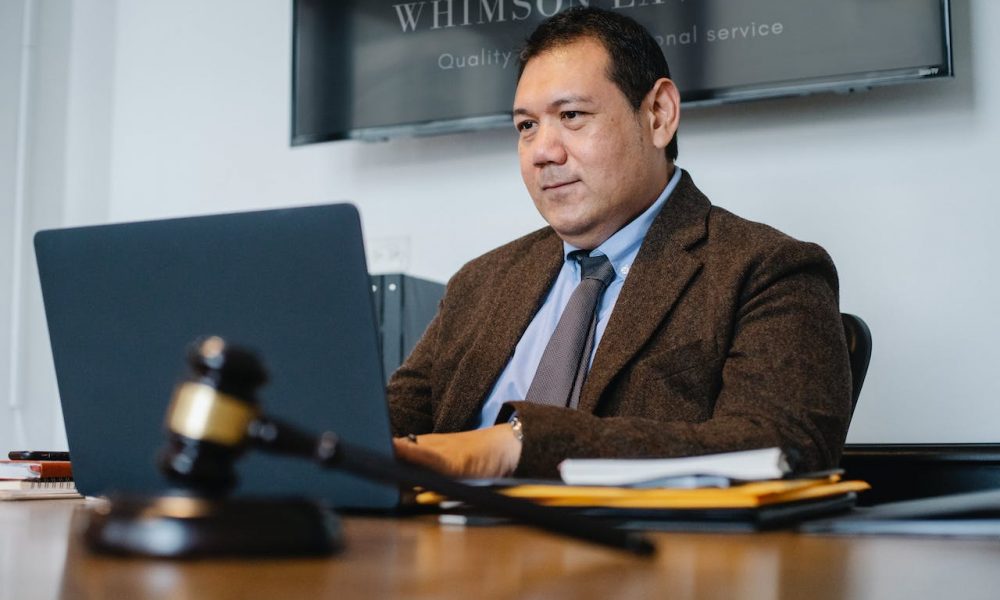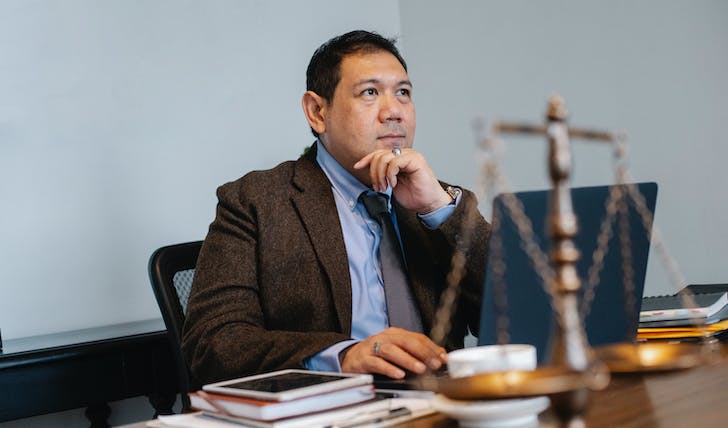
6 Reasons Why Sentencing Is Any Judge’s Toughest Assignment

When you picture a judge, you might imagine a stern figure in black robes, gavel in hand, delivering verdicts with unwavering confidence. But beyond that regal exterior lies a tumultuous world of tough decisions, ethical dilemmas, and burdensome responsibility.
Here are six compelling reasons why.
6. The Balancing Act of Justice and Mercy
It is not as simple as “crime committed, punishment given.” A judge must straddle the fine line between justice for the victim and society and the potential for redemption or reform of the offender.

Towfiq / Pexels / Of all the tasks a judge faces, none is more challenging than sentencing.
Too lenient a sentence might appear to downplay the severity of the crime or endanger the public. Similarly, if it is too harsh, it may snuff out any chance of rehabilitation. This balancing act is a formidable challenge, with the weight of both societal and individual lives in the balance.
5. The Decision Doesn’t Just Impact the Person Standing in the Dock
When a judge decides on a sentence, it does not just affect the person standing in the dock. Families, especially children, can feel the repercussions. For instance, if a single parent is incarcerated, their children might end up in foster care.
Studies have shown that kids with incarcerated parents are more likely to face challenges like poverty or mental health issues. It has a domino effect, and the judge has to consider where the pieces will fall.
4. Every Case Is Unique
While there are sentencing guidelines in place, no two cases are the same. Each offender comes with a unique background, set of circumstances, and reasons behind their actions. A crime might be driven by desperation, mental illness, or sheer malevolence.

Sora / Pexels / When a judge decides on a sentence, it can deeply impact families and children who will feel the repercussions.
So, while a judge might have seen hundreds of theft cases, the story behind each one varies. Every case requires fresh eyes, empathy, and understanding.
3. Public Perception and Scrutiny
In today’s age of social media and instant news, high-profile cases are dissected in real-time. Sentences are not only evaluated in the courtroom but also in the court of public opinion. Judges must remain immune to public pressure, making decisions based on law and fact, not popularity.
But knowing that thousands, maybe millions, are critiquing your every move? That is a pressure cooker few would envy.
2. The Burden of Finality
Once the gavel comes down, there is no taking it back. The consequences are irreversible for some decisions, like those involving capital punishment. Even in non-capital cases, judges must live with the knowledge that their sentences have changed lives forever.

Ekaterina / Pexels / When deciding on a sentence, a judge must consider the victim’s family and offspring.
That kind of responsibility can weigh heavily on a person’s conscience.
1. The Personal Toll
Judges are human, too. They carry their own beliefs, emotions, and experiences into the courtroom. They might see themselves as a young defendant or recall an event from their past that resonates with a particular case. It is a job that demands an emotional detachment.
But that is easier said than done. The stress, sleepless nights, and second-guessing can take a personal toll that few outside the profession understand.
Parting Thoughts
Judges have one of the most challenging roles in the judicial system. While they wield significant power, they also bear the brunt of the responsibility that comes with it. Sentencing is a task that demands a mix of legal knowledge, emotional intelligence, and unwavering ethics.
So, the next time you read about a court case or see a judge in action, remember the immense pressure they are under. It is a tough assignment, no doubt about it.
More in Criminal Attorney
-
New York to Mail Out One-Time Inflation Rebates. Here’s the Eligibility List
New York is preparing to send out its first-ever inflation refund checks, providing financial relief to millions of residents as prices...
October 3, 2025 -
Here’s What Artists Should Know About Copyright & Its Implications
Copyright protects your art from the moment you create it. The second your drawing, painting, sculpture, or photo is fixed in...
September 27, 2025 -
Everything to Know About Vogue America’s New Editor, Chloe Malle
Chloe Malle just stepped into one of the most powerful roles in fashion media: Head of Editorial Content at Vogue America....
September 21, 2025 -
Did Barron Trump Apply to Harvard? Clearing Up the Rumors
Speculation often swirls around public figures, and in recent months Barron Trump’s college choices became part of the conversation. Questions surfaced...
September 20, 2025 -
Can You Be Naked in Texas?
The Texas public nudity law isn’t as simple as “no clothes, you are in trouble.” It all comes down to intent,...
September 13, 2025 -
Why AI Is Now a Necessity, Not a Choice, for Law Firms
Artificial intelligence is no longer a futuristic concept for the legal industry. It is steadily changing how law firms operate, not...
September 13, 2025 -
Waikiki Lifeguard Cleared in Confrontation With Notorious Criminal
On a hot day at Kuhio Beach, veteran lifeguard Christopher Kekaulike Kam stepped in when things got out of control. A...
August 13, 2025 -
Gawking at the Coldplay ‘Kiss Cam’ Affair Is Voyeurism at Its Worst!
Coldplay concerts are meant to be joyful. But during a recent show, a playful kiss cam bit turned into a public...
August 6, 2025 -
Essential Safety and Success Resources for Trans Journalists
Trans journalists go through tough spaces every day. In a field that often tests your limits, knowing where to turn for...
July 30, 2025














